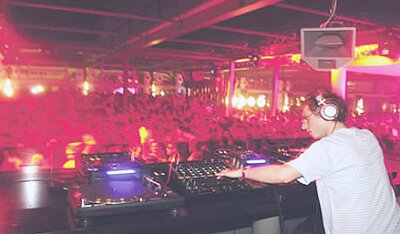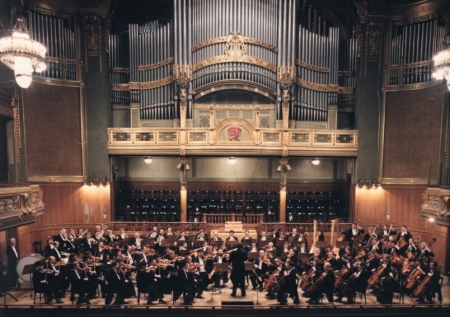Romance
 The word romance takes us to the Middle Ages in Spain. In those days, in addition to the everyday ordinary language, there was another – Latin. Scientists wrote books on it, church prayers were performed. We studied it in our pre-revolutionary gymnasiums. Latin was recognized as the official language of the Catholic Church. Although this language was widely spoken, it was not widely available. Latin was known only to literate people, and there were incredibly few of them at that time. And then, along with church writings in Latin, songs and poems of the people’s warehouse, which were performed in the Romanesque (Spanish) language, began to appear. Hence the name “romance”. From Spain, romances quickly spread throughout Europe, and at the end of the 18th century appeared in Russia. Of course, here they did not sound in Spanish, but the name stuck.
The word romance takes us to the Middle Ages in Spain. In those days, in addition to the everyday ordinary language, there was another – Latin. Scientists wrote books on it, church prayers were performed. We studied it in our pre-revolutionary gymnasiums. Latin was recognized as the official language of the Catholic Church. Although this language was widely spoken, it was not widely available. Latin was known only to literate people, and there were incredibly few of them at that time. And then, along with church writings in Latin, songs and poems of the people’s warehouse, which were performed in the Romanesque (Spanish) language, began to appear. Hence the name “romance”. From Spain, romances quickly spread throughout Europe, and at the end of the 18th century appeared in Russia. Of course, here they did not sound in Spanish, but the name stuck.
Early Russian romances are called household. Composers often used a peasant folk melody in them, so the soul of a folk song lives in many household romances.
The creators of the Russian household romance are composers of the first half of the XIX century. The song – a romance is an unchanging sphere of creativity A. A. Alyabyev. His lyrics reflect with great depth the everyday world of contemporary experiences, which were characterized by a tragic perception of life, a sense of loneliness, longing, despair, a sense of civic protest, as well as unselfish friendship, resurrecting the hopes of sublime love. An unusually wide range of poets, on verses of which Alyabyev created his romances. Among them are Pushkin, Delvig, Zhukovsky, poets, Decembrists Griboedov, Vyazemsky and others. A great many romances of the composer (there are 180 of them altogether) can be attributed to a number of the most outstanding examples of vocal creativity, for example, “I see your image”, “Two crows”, “Don’t say: love will pass”, and the famous “Nightingale” is the pearl of Alyabyev lyric .
A bright phenomenon in the Russian chamber vocal music – A.E. Varlamov. His art, which is inextricably linked with the origins of the people, with the urban song culture, stands out as one of the peaks of the Russian household romance. Works Varlamov were extremely popular. Dear “Red sundress” was sung “by all classes” and even got embodied in fine art: splint appeared – a kind of illustration to Varlamov’s song. Many romances of the composer as a characteristic element of life were introduced into the works of a number of writers: Gogol, Turgenev, Nekrasov, Leskov, Bunin, and even Golsworthy. The content of Varlamov’s romances was not limited to lyrical plots. Here and patriotic themes (“Sail”), and the theme of nature (“Mountain Peaks”, “The leaves rustled sadly”), and the theme of art (“Dream of Italy”, “Poet”, “Inner Music”). Varlamov’s romances cover a wide range of emotional range of images – from light to deeply dramatic.
The domestic line of the Russian romance has found its distinctive continuation in the vocal lyrics of A. A. Gurilev. To this genre, he walked, like all his contemporaries, from Russian poetry, affecting in it what seemed close to him. The song “A bell sounds like a rattle” is distinguished by deep penetration. With a poetic sadness, the composer conveys images of a long journey, the “native sounds” of a sad song of a driver. In his work, Gurilyov constantly turned to the images of Russian girls, now pensive and sad, now gracefully flirtatious. The genre of “female portrait” with soulful lyricism was recreated in the romances “Poor girl you”, “Even at the dawn of my days”, “The Runaway”. Written in a thin transparent manner, they resemble portrait miniatures of the 30s-40s — exquisite watercolors made by artists. The song melody of Gurilev is consonant with the three-part size of Russian poetry – anapaestus, amphibrachia, and dactyl. The smoothness of the waltz movement in combination with the song intonations gives the compositions of this composer a hue of soft sensitivity.
The younger contemporary of Alyabiev, Gurilev, Varlamov is M. I. Glinka. Vocal lyrics were for him a constant companion of creative life. The composer completed a long period of formation of the chamber vocal culture and summarized its genre traditions at the highest level. Glinka sought to complicate the texture, to a wide concert, virtuosity. His romances require subtle and perfect skill from the performer. They use the richest possibilities of singing voice, a variety of techniques of vocal expressiveness – wide cantilena, expressive declamation, timbre richness, subtle gradation of dynamic shades. Glinka sensitively responded to all the bright poetic phenomena. He was attracted by the poems of Delvig, the romantic works of Zhukovsky, the works of Lermontov and the Russian poet-nugget Koltsov. But the closest thing to Glinka was Pushkin’s muse. The closeness of their creativity is born by the internal affinity of artistic natures. They revealed to the world all the spiritual wealth of their native people. The music of Pushkin’s verse prompted the composer the plasticity and flexibility of the melody, and under the influence of the rhythm of Russian versification a clear, clear musical form of romance lined up.


